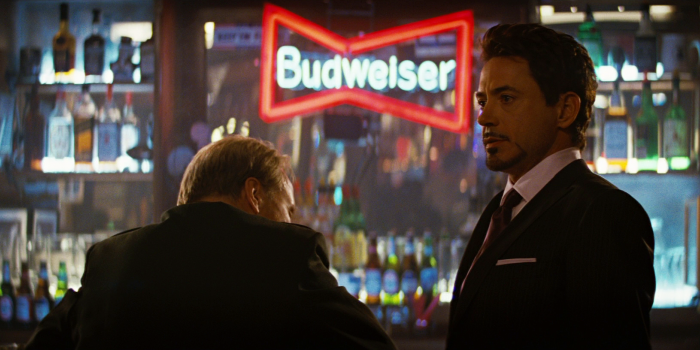
Cast: Adolfo Jiménez Castro, Nathalia Acevedo, Rut Reygadas
Director: Carlos Reygadas
Country: Mexico | France | Netherlands | Germany
Genre: Drama
Official Trailer: Here
It’s only a third of the way into Post Tenebras Lux that it falls apart, which is a shame given the magnificent movie it is to behold on a purely visual level. Carlos Reygadas’ fourth film—and first since his brilliant breakthrough, or at least the closest a director this experimental in inclination can come to having one, with 2007’s Silent Light—earned him the best director prize at Cannes last year, an understandable accolade in the face of such extraordinary aesthetic triumph. Look no further than his opening scene, a sequence to rival that even of its predecessor, for evidence that this is one of the medium’s great masters at work. Tracing the plodding path of a delighted toddler through a rain-soaked field filled with animals as a storm gathers in the sky above, it’s a tremendous, terrifying tableau vivant emblematic of all the ill-ease that’s to come.
Where Silent Light had him consigning much of his meaning to cinematographer Alexis Zabe’s astonishing evocation of the sublime, Post Tenebras Lux finds the Mexican maestro managing only to invoke the sub-par.
 As much of that ill-ease as arrives narratively, alas, it’s nought compared to that which the audience inevitably endures as it’s assailed by the emptily elliptical excess of Reygadas’ increasingly eclectic storytelling style. Where Silent Light had him consigning much of his meaning to cinematographer Alexis Zabe’s astonishing evocation of the sublime, Post Tenebras Lux finds the Mexican maestro managing only to invoke the sub-par. His tale here, again involving a family framed against the expanse of the land, draws on his own experiences by way of sequences shot at various places he once called home. It’s a particularly personal picture, as evidenced by the casting of his own kids as those of his ostensible protagonist; what should serve intimacy, however, supports only impenetrability.
As much of that ill-ease as arrives narratively, alas, it’s nought compared to that which the audience inevitably endures as it’s assailed by the emptily elliptical excess of Reygadas’ increasingly eclectic storytelling style. Where Silent Light had him consigning much of his meaning to cinematographer Alexis Zabe’s astonishing evocation of the sublime, Post Tenebras Lux finds the Mexican maestro managing only to invoke the sub-par. His tale here, again involving a family framed against the expanse of the land, draws on his own experiences by way of sequences shot at various places he once called home. It’s a particularly personal picture, as evidenced by the casting of his own kids as those of his ostensible protagonist; what should serve intimacy, however, supports only impenetrability.
There’s a term tossed about time and again in reference to the film, yet it’s less the meaning of these scenes, framed with foggy edges as though unsure themselves if they be fact or fantasy, that dodges decipherability than it is the reason behind them. Reygadas has announced often his intent to arrive at an atmosphere akin to the experience of an expressionist painting; quite why he couldn’t put the camera down and take out a brush instead is one of the few great mysteries of life the movie doesn’t fumble in fitting into itself. The calamity that comes about at the third-way mark, that which derails the film and turns captivating curio to flat-out train wreck, is what’s been seen as its most opaque scene.
Reygadas’ opaque approach, accentuated here more than ever before, is as a challenge to his audience. Does he think it too much? That he offers up answers so abruptly suggests so.
 Here, in one of the few scenes that must surely be certifiable fantasy, the parents who centre the film—inasmuch as anything does—seek sex in a sordid spa through rooms labelled Hegel and Duchamp. Let’s quote the latter: “The creative act is not performed by the artist alone; the spectator brings the work in contact with the external world by deciphering and interpreting its inner qualifications and thus adds his contribution to the creative act”. Such, indeed, is the sublime pleasure of Reygadas’ cinema: here is a filmmaker faithful enough in his audience to afford them the right—and indeed the responsibility—of interpretation. But what of Hegel, whose dialectical reconciliation of disparate systems allows for the arrival of an intermediate imposing the more desirable aspects of one onto those of the other (or what Hegel’s fellow philosopher Hannah Montana once termed “the best of both worlds”)?
Here, in one of the few scenes that must surely be certifiable fantasy, the parents who centre the film—inasmuch as anything does—seek sex in a sordid spa through rooms labelled Hegel and Duchamp. Let’s quote the latter: “The creative act is not performed by the artist alone; the spectator brings the work in contact with the external world by deciphering and interpreting its inner qualifications and thus adds his contribution to the creative act”. Such, indeed, is the sublime pleasure of Reygadas’ cinema: here is a filmmaker faithful enough in his audience to afford them the right—and indeed the responsibility—of interpretation. But what of Hegel, whose dialectical reconciliation of disparate systems allows for the arrival of an intermediate imposing the more desirable aspects of one onto those of the other (or what Hegel’s fellow philosopher Hannah Montana once termed “the best of both worlds”)?
This family plot, lost though it may seem to get amidst apparently unrelated rugby matches and demonic visitations, is one forged of opposing ideologies: rich versus poor; reality versus fantasy; father versus mother; man versus nature. Hegel would howl with joy to see such systems, and to see, despite its abstractions, how utterly ordinarily Post Tenebras Lux brings them together. What a weird movie this manages eventually to be, albeit for none of the reasons it initially seems. Reygadas’ opaque approach, accentuated here more than ever before, is as a challenge to his audience. Does he think it too much? That he offers up answers so abruptly suggests so. Affirming the audience’s essential responsibility in art before denying them the right to take it up, Reygadas reveals his film as little more than avant-garde affectation to its own self-satisfied end. There’s nothing like philosophical fraud to make so gorgeous a film so ugly and uninteresting.
[notification type=”star”]48/100 ~ BAD. Affirming the audience’s essential responsibility in art before denying them the right to take it up, Post Tenebras Lux is little more than avant-garde affectation to its own self-satisfied end.[/notification]



